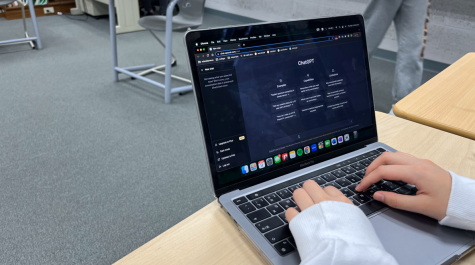Minors can make it major
In September of 2019, Swedish climate activist Greta Thunberg travelled by boat to New York to speak at the UN Climate Action Summit. While there, she blasted politicians for their abysmal efforts to address climate change, urging governments to do more to cut global emissions. Factual and filled with impassioned rage, Thunberg’s message was clear:
“How dare you pretend that this can be solved with just ‘business as usual’ and some technical solutions? With today’s emissions levels, [the] remaining CO2 budget will be entirely gone within less than 8 and a half years.”
8 and a half years. It’s a frightening number. Yet it seems that world leaders and politicians had missed Thunberg’s point. Evidently, they were focused on a different number: her age.
When the Summit took place, Thunberg was 16. For many, the prospect of a child telling a room of adults to “face the facts” was too much. On Twitter, she was mocked by Donald Trump as a “happy young girl looking forward to a bright and wonderful future.” Russian president Vladimir Putin painted her as a youth handicapped by ignorance, joking that “nobody explained to Greta that the modern world is complicated and complex.” Even those that had once taken turns to praise her, have done little to nothing to heed her warnings.
Is it particularly symbolic that a girl named as TIME’s person of the year, pictured on the magazine’s cover with the caption “the power of youth,” is treated with such disdain? If you’d ask me, I’d say that Thunberg’s case sheds light on a society that unwittingly silences youth voices. I’d say that we live in a society that is too concerned with a child’s age to hear what they have to say, a society that believes children can grow up to be compassionate and globally conscious adults without ever having exercised their voices before. I’d say that we live in a society that despises “kids these days” and is frightened when they express concerns about a world they will inevitably inherit. But I wouldn’t know, because I am after all, just a child.
I’m currently 16. That makes me, by law, a “minor.” I’ve never given much thought about this label, but I do find it interesting that I am classified by a word synonymous with “lesser.” And “lesser,” it appears, is exactly how society perceives its youth.
Adult anxiety over the younger generation is constantly inflated by images of lazy, troublemaking and violent individuals. With the advent of social media, antisocial has been added to the list of concerns. An entire generation has been categorized based on the actions of a problematic minority, a minority that no doubt exists in adults as well. Child therapist Tanya Byron worries that when “we see children as pestilent,” we create a society that “discriminates against youth and so reduces the participation of upcoming generations in the development of the social and cultural landscape.” But what about Greta Thunberg? Despite having to weather insults from offended political leaders, there is no question that Thunberg’s story is one of success. Yet for every Greta, there are countless other youths unable to overcome the many roadblocks put in place to silence them. Eventually, we give up.
Rather than treat children as incompetant and their thoughts as immature, why can’t we create an environment that is conducive to growth?
It turns out, failure to see youth potential is not a new phenomenon. There was once a time, not too long ago, that those leading the crusade against today’s youths were once on the receiving end of complaints themselves. The same is true for the generation before them, and the generation before that. As psychology professor Alison Gopnik for the Wall Street Journal skeptically writes, “have people really been steadily deteriorating since ancient times?”
We, of course, have not. The fact is, children have always been important catalysts for social change. A prime example of this was the Birmingham Children’s Campaign. An integral moment of the Civil Rights Movement, Martin Luther King Jr. organized the Birmingham campaign in order to demonstrate for greater economic opportunities for African Americans. Adults, however, were hesitant to participate, fearing the consequences of being arrested. It was instead schoolchildren that took to the streets in thousands, whose efforts culminated in the desegregation of public facilities.
Young people have so much untapped potential. We’re like caterpillars, soon to metamorphosize into majestic butterflies. But our potential may never truly be realized until we create platforms for youth voices to be heard. These platforms need not be as grand as that of Greta Thunberg; in fact, a good starting point would be in our schools. I’m fortunate to have high school research teachers that believe in my work. I am fortunate enough to attend a school that recognizes our potential, and whose vision is to offer “opportunities for students to reach their full potential to become caring, competent, [and] knowledgeable.” Yet I still find myself wishing that we had more say in dictating our education, that as a ClassGov officer, the concerns we bring from grade feedback surveys are addressed or at least acknowledged.
In the end, I don’t think youth are completely undeserving of blame. I am mortified by children who disrespect their parents and elders and am a devout believer in filial piety. I feel extremely privileged to go to a school that provides such rich educational services. But at the same time, I don’t want to feel like being U18 means my voice will fall upon deaf ears. Most of all, I don’t want to become an adult that stubbornly believes the next generation will never be on par with mine.
I have a little over a year before I turn 18. When that time comes, I’ll complete my metamorphosis into a butterfly, free to explore the world and its opportunities. But as I soar higher and higher, I’ll never forget that for every butterfly there was once a caterpillar, and that caterpillar was told to keep its head down and mouth shut, and slowly inch its way on.



